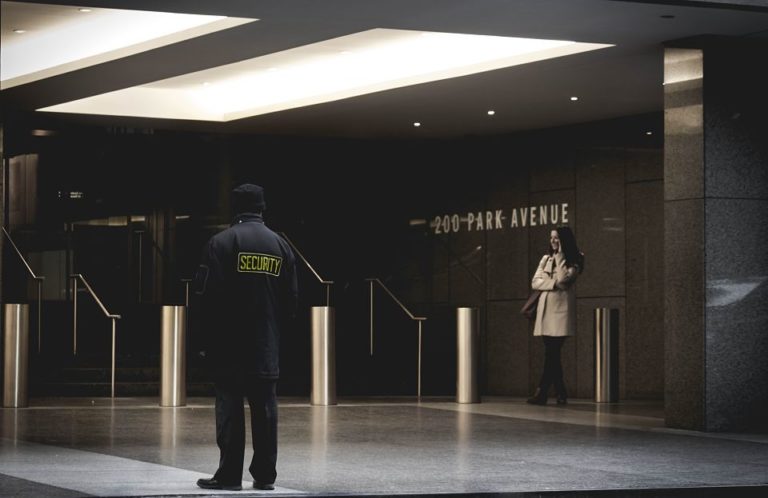Tis the Season to Be Aware

Predator: Joe S., carjacker and robber serving time in Florida state prison
Discussion: A day of holiday shopping at an upscale New Jersey mall ended in death for Dustin Friedlander. The attorney had just let his wife into their luxury SUV filled with gifts, when four thugs emerged to demand his car keys. When he refused, a bullet to the head ended his life.
Carjacker Joe S. says the scene at the Mall at Short Hills in mid-December is a classic carjacking that got violent. A prime target Range Rover SUV priced at $70,000. A happy young couple focused on their gifts and each other. A late evening timing of 9 p.m. when it’s easy to escape detection and slip out of the shadows. A mall parking garage without interior surveillance.
The suspect’s vehicle was seen on mall security video being driven through the parking lot shortly before the attack. “Yeah, of course you scope out the place. You ID the best cars. You know the spots where it’s easier to hide and further away from security,” Joe said.
Joe has threatened and pistol whipped car owners. Whatever it takes to get what he wants. “I sold the cars and broke into homes, anything to get money to buy drugs,” said Joe.
Repeat offenders are often at work in burglaries and carjackings. One of the suspects in the Friedlander case plead guilty a week before the fatal incident to a third-degree home burglary charge for trying to break into a Newark residence. The four men who allegedly shot Friedlander and took his car now face multiple charges.
“Ripping people off is so damn easy most of the time. People don’t got no idea who’s around them until you are right up on them. Then, BAM, it’s too late,” he said.
Law enforcement officials note the months of December and January can be primetime for auto theft and burglaries – and sometimes much more heinous crimes.
Bad guys usually have a plan. They run through their scenarios.
How about you?
What will your holiday routine look like? The tips below will help you keep safe in any situation this holiday season, but especially with the threats of carjacking and robbery.
Carjacking and Situational Awareness
First and foremost, be situationally aware at all times. If your Spidey sense is tingling, listen to it! This means you need to have a conscious and constant focus on the environment to detect, validate and confirm threats.
Your ability to detect potential threats can be a result of both instinct and observation. Take in all the information around you, recognize how your own actions and the actions of others may influence the outcome to every scenario.
Understand what the risks are. Realize that bad guys love the holidays as much, hey, even more, than you do. Always be thinking about what you would do in different scenarios to keep safe. Understand how to spot danger when it’s lurking around the corner.
An awareness approach is a lifestyle. Like any skill, it takes practice. You need to do it all the time to be good at it. If it is not a lifestyle, failure increases exponentially, especially in dangerous environments.
Awareness is a weapon. If used properly, it can conceal your movements, ward off potential threats, prevent attacks, and ultimately, save your life and the lives of others. Awareness is free. It never runs out and is issued to each and every person who walks the earth. Harnessing the power of awareness can be difficult and tiring. With practice, however, awareness can become as natural as walking.
Understand the Environment
That New Jersey mall was toney, and most people wouldn’t have considered it a high-risk environment. But the county it was located in was experiencing an increase in carjackings.
Now figure out how you’ll identify real threats from false ones. Joe says he used to dress nice. It made people think he wasn’t a threat. He could get right up next to his targets that way. See, the way you perceive people causes you to raise or let down your defenses. Go on facts, not assumptions.
Carjacking has become one of the most prevalent crimes in many parts of the world, overtaking car theft as sophisticated alarm systems with kill switches force car thieves to switch over to carjacking. Most carjacking crimes occur for the sole purpose of taking the car, but it can go downhill quickly. Whoever you are, protect yourself by becoming familiar with the methods, ruses and locations commonly used by carjackers.
Avoid the Attack (Alert Mode)
The first step is to avoid an attack. Be alert at all times and aware of your environment. The most likely places for a carjacking are:
- High crime areas
- Less-traveled roads (rural areas)
- Intersections where you must stop
- Isolated areas in parking lots or garages
- Residential driveways and gates
- Traffic jams or congested areas
Tips for the car
- Always lock your vehicle
- Store valuables and gifts out of sight
- Don’t leave your car running unattended even for a minute
- Never leave keys in the ignition or in a locked garage or a “secret” box outside your home.
- Park in high-traffic locations with good lighting when possible.
Strategies in Traffic
Look for possible avenues of escape. Keep some distance between your car and the vehicle in front of you – about one-half of your vehicle’s length – so you can maneuver easily if necessary. You should always be able to see the rear tires of the vehicle in front of you.
When stopped, use your rear and side view mirrors to stay aware of your surroundings. Keep your doors locked and windows up. This increases your safety and makes it more difficult for an attacker to surprise you.
Common Ruses
Accidents are one ruse used by attackers as a prelude to a carjacking. The following are more common attack plans:
The Bump — The attacker bumps the victim’s vehicle from behind. The victim gets out to assess the damage and exchange information. The victim’s vehicle is then taken.
Good Samaritan — The attackers stage what appears to be an accident. They may simulate an injury. The victim stops to assist, and the vehicle is taken.
The Ruse — The vehicle behind the victim flashes its lights or the driver waves to get the victim’s attention. The attacker tries to indicate that there is a problem with the victim’s car. The victim pulls over, and the vehicle is taken.
The Trap — Carjackers use surveillance to follow the victim to his car when shopping or driving home. When the victim pulls into his or her driveway and waits for the gate to open, the attacker pulls up from behind and blocks the victim’s car.
Defense Strategies
- If you are bumped from behind, or if someone tries to alert you to a problem with your vehicle, pull over only when you reach a safe public place.
- If you are driving into a gated community, call ahead to have the gate opened. Otherwise, wait on the street until the gate is open before turning in and possibly getting trapped.
- Think before stopping to assist in an accident. It may be safer to call and report the location, number of cars involved, and any injuries you observed.
- You can avoid becoming a victim. Ruses and methods, as well as the types of cars most often targeted, differ from country to country. Talk with the regional security officer (RSO) at your embassy about local scams and accident procedures.
- In all cases, keep your cell phone or radio with you, and immediately alert someone about your situation.
During A Carjacking (Crisis Mode)
In most carjacking situations, the attackers are interested only in the vehicle. Try to stay calm. Do not stare at the attacker, as this may seem aggressive and cause them to harm you.
There are two options during an attack: non-resistive, non-confrontational behavior, or resistive, confrontational behavior. Your reaction should be based on certain factors:
- Type of attack
- Environment (isolated or public)
- Mental state of attacker (reasonable or nervous)
- Number of attackers
- Weapons
- The presence of children or other family members
In a non-confrontational situation, you should:
- Give up the vehicle freely
- Listen carefully to all directions
- Make no quick or sudden movements that could be construed as a counterattack
- Always keeps your hands in plain view
- Tell the attacker of every move in advance
- Make the attacker aware if children are present. The attacker may be focused only on the driver and not know children are in the car.
In a resistive or confrontational response, you need to make a decision to escape or attack the carjacker. Before doing so, consider:
- The mental state of the attacker
- Possible avenues of escape
- The number of attackers. There are usually more than one
- The use of weapons. (Weapons are used in the majority of carjacking situations.)
- In most instances, it is probably safest to give up your vehicle. Cars are replaceable. People aren’t.
After the Attack (Post-Crisis)
- Observe, identify and determine what to do if there could be other possible threats.
- If you are in a populated area, immediately go to a safe place.
- After an attack or an attempted attack, you might not be focused on your safety. Get to a safe place before contacting someone to report the incident.
Reporting the Crime
- Describe the event. What time of day did it occur? Where did it happen? How did it happen? Who was involved?
- Describe the attacker(s). Without staring, try to note height, weight, scars or other distinguishing marks, hair and eye color, the presence of facial hair, build (slender, large) and complexion (dark, fair).
- Describe the attacker’s vehicle. If possible get the vehicle license number, color, make, model, and year, as well as any marks (scratches, dents, damage) and personal decorations (stickers, colored wheels).
- The golden rule for descriptions is to give only the information you absolutely remember. If you are not sure, don’t guess
Go ahead and be merry this holiday season, but always be prepared. If Santa battles Spidey, you better hope Spiderman wins. Remember there is plenty of danger in the holiday mall beside a fender bender. Know what you’d do before it happens. Keep your head on a swivel.
More to Follow!







